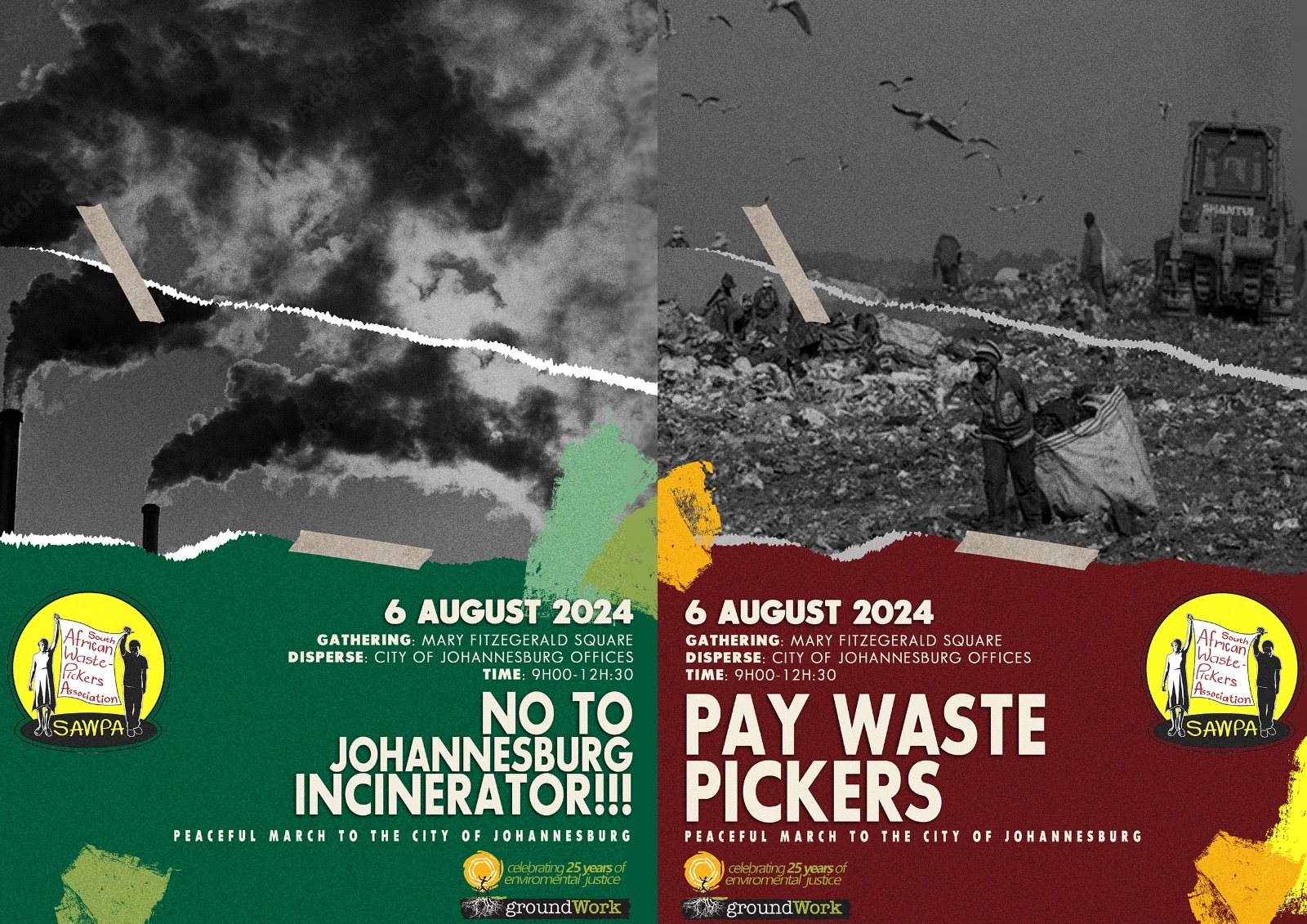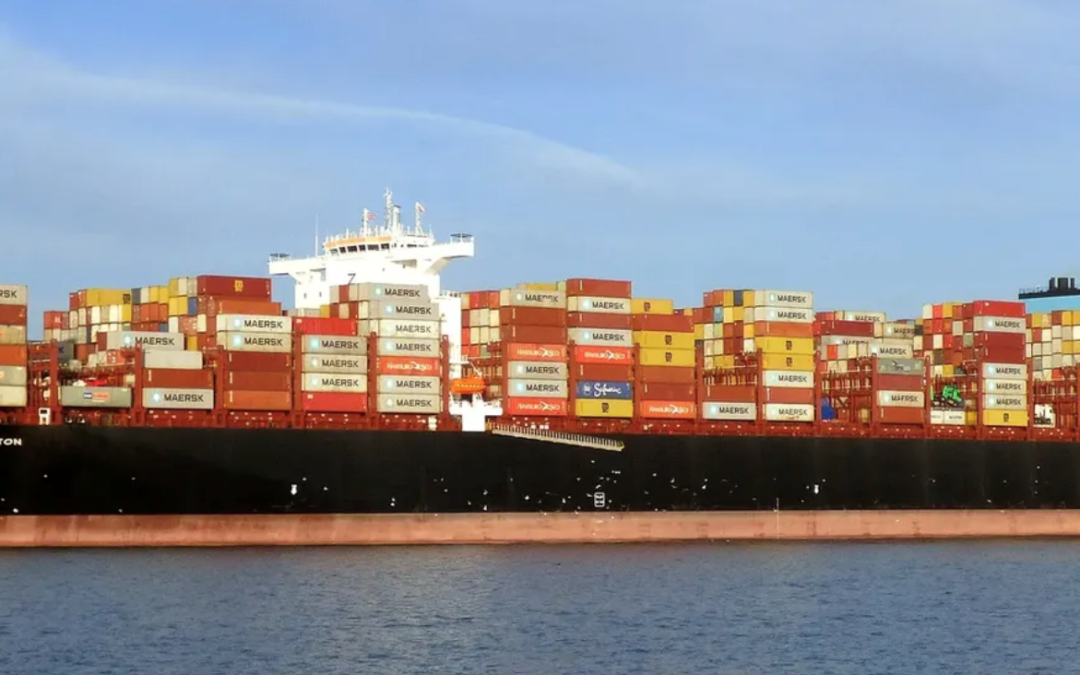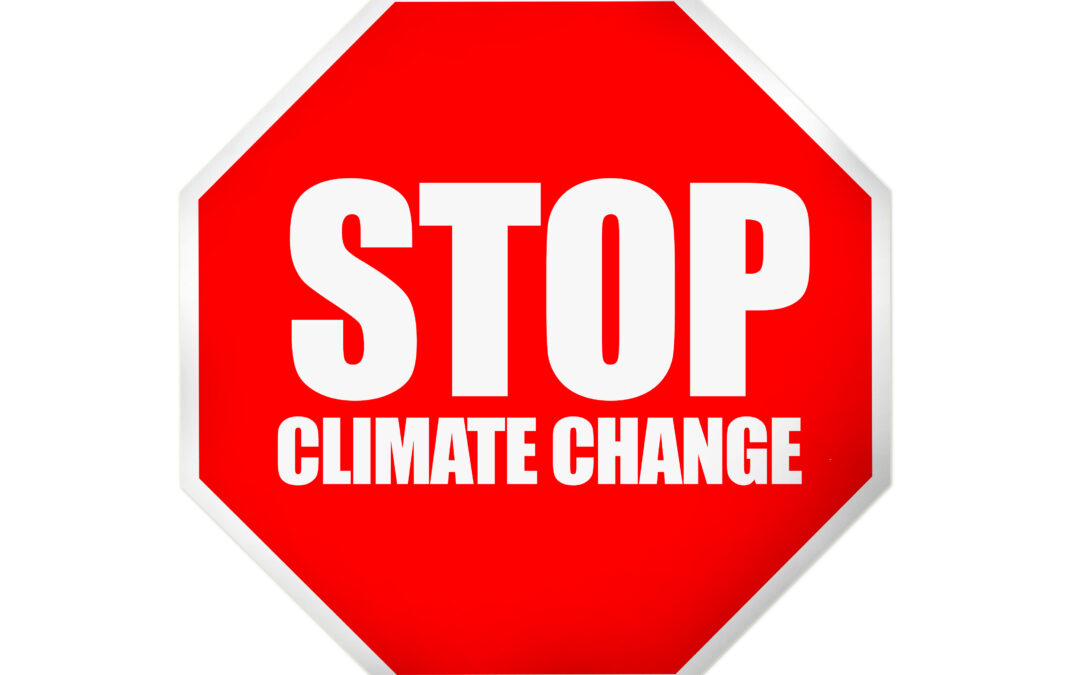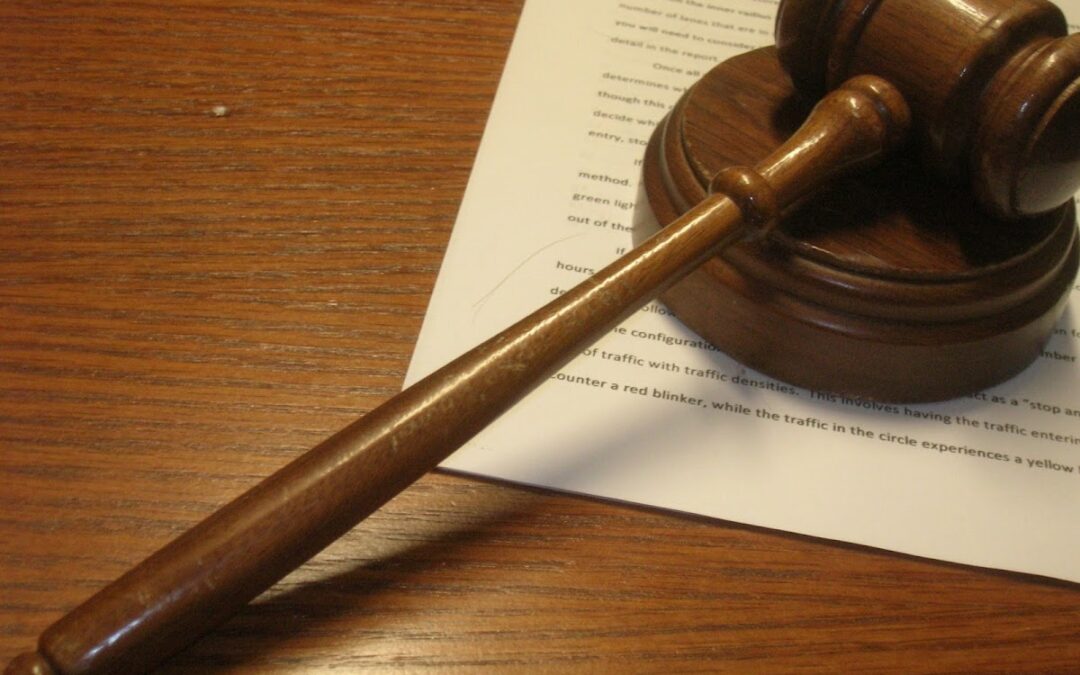
Media Release
06 August 2024
Media enquiries: Tsepang Molefe, , +27 74 405 1257
Waste pickers protest against a planned incinerator in Johannesburg and demand payment by waste producers from levies.
Johannesburg, Tuesday 06 August 2024. The South African Waste Pickers Association is protesting against the City of Johannesburg for its plans to set up a waste incinerator which threatens the livelihoods of thousands of waste pickers who are gathering in a peaceful march against the proposed Waste to Energy Facility-Robinson Deep Landfill site, in Johannesburg. “Burning waste in incinerators is a false and unjust solution!” said Lefa Mononga, SAWPA Coordinator.
The waste pickers are also calling for the implementation of the Extended Producer Responsibility Scheme which is legislation that provides for waste pickers to be compensated for collecting recyclable waste material such as cans, plastic and cardboard packaging, through a levy charge on the companies that produce this waste.
The responsibility was given to PRO Alliance to disburse the levies collected from its members to the waste pickers under the scheme. The PRO Alliance has made no attempt to fulfil this responsibility – its very reason for existence – nor has it engaged waste pickers of SAWPA. It has all but ignored waste pickers who feel that this exclusion, inaction, failure to pay levies collected or even account for them, is a gross dereliction of duty and undermines their dignity and their livelihoods. This has also led to the impression that there must be an element of corruption involved due to the lack of communication, consultation, and transparency from the PRO Alliance while the organisation continues to collect levies yet makes no disbursements to the rightful beneficiaries – the waste pickers – as is stipulated in the scheme.
Waste companies often try to convince local governments to buy incineration technologies so they can make profits from environmental harms. Local governments should be aware that “incinerators are one of the most toxic, expensive, dangerous, and climate-polluting industries” (GAIA) which tie them into capital intensive outlays and financially onerous maintenance agreements. Johannesburg alone accounts for more than 20 000 waste pickers that are reliant on recycling, but all these jobs will be sacrificed for a few technical jobs if the City’s dubious plan goes ahead.
According to SAWPA, their demand to get fairly compensated by the Extended Producer Responsibility (EPR) – Producer Responsibility Organisations (PRO’s), as legislated by government in the Extended Producer Responsibility schemes is equally important Waste pickers play a central role in South Africa’s waste economy. They collect 80-90 percent of used packaging and paper that is recycled, and play a key role in achieving South Africa’s 57 percent overall recycling rate [1]. Supporting waste picker livelihoods is an environmentally just solution for recyclable waste streams. The Department of Forestry, Fisheries and the Environment (DFFE) recognises the value of the work of waste pickers through the Waste Picker Integration Guidelines published by the DFFE in 2020.
The City of Johannesburg applied for an Integrated Waste Management Licence from the DFFE which was approved in late 2023 and upon which the environmental justice organisation groundWork, friends of the Earth South Africa launched an administrative appeal. Municipal waste incinerators are sometimes referred to as Waste to Energy(WtE) facilities, but are problematic because they directly compete with the recycling sector. Incinerations put waste pickers’ livelihoods at risk and undermine the work that they do daily. As a result, thousands of informal jobs are lost due to the unnecessary incineration of recyclable waste. Incinerators are not an effective solution to waste management problems as the process produces toxic fumes and smoke which affects air quality, and also takes away the livelihood of waste pickers. Johannesburg alone accounts for more than 20 000 waste pickers who are reliant on recycling but all these jobs could be sacrificed for a few technical jobs.
Besides displacing waste recyclers and waste pickers, there are other challenges related to climate change. Incinerators produce persistent organic pollutants and toxic ash as a by-product (POPS) which Stockholm Convention disapproves of especially in developing countries. South Africa has committed itself to decreasing the production of POPS. The air pollution and toxic ash that will be produced if the city proceeds with incineration, will fly in the face of this country commitment. In addition, it will have costly health consequences for people living in the city and will undermine their rights under Section 24 of the Constitution.
Private waste companies normally commit municipalities to contracts of providing so many tons of waste to the incinerator that they are operating. The clauses in these agreements come with penalties should the municipality for some reason fail to supply the private company with the agreed quantity of waste. Incinerators have bankrupted municipalities, so the city has to be careful. Waste pickers call on the city to reconsider their position and scrap the incineration plan.
Waste pickers are people who derive their livelihoods from salvaging waste on the streets, in communities and dumpsites. In 2016 the existence of waste pickers was recognised by the then Minister of Environment, Ms Edna Molewa in her budget speech when she spoke about the importance of waste pickers and the contribution they make to the gross domestic product (GDP) and to the environment. This recognition happened after heated debates and engagements with the Portfolio Committee of Environment at the National parliament from 2007.There have been so many developments since then, we now have Waste Picker Integration Guidelines (WISA) developed by the DFFE. These guidelines are meant to give direction to municipalities as to how to go about integrating waste pickers into waste management systems. The DFFE has worked and committed itself to the struggle of waste pickers by introducing the guidelines.
After the guidelines were introduced this was followed by Extended Producer Responsibility Scheme (EPR) for waste packaging materials, which has a levy charged on all the materials, especially those that are recovered by waste pickers. When this scheme came into existence in 2021, it was agreed that a portion of the levy will be used to pay waste pickers a “service fee” as of November 2022. This has not happened despite the fact that SAWPA has registered more than 10 000 members under the South African Waste Picker Registration System (SAWPRS) developed by CSIR under DFFE request.
Due to the reasons mentioned above the SAWPA decided to embark on a peaceful march to the offices of the City of Johannesburg on Tuesday 6 April 2024. The aim of the march is to hand over a memorandum of demands to the City of Johannesburg, DFFE as well as to the PRO Alliance.
[Ends]
About South African Waste Pickers Association
The South African Waste Pickers Association (SAWPA) is a voluntary movement of waste pickers of South Africa. It was formed in 2009 in Midrand, Johannesburg and currently has 10 000 registered members from all nine provinces of South Africa. Organising with waste pickers started in 2006 where almost every town, every landfill was visited with an aim of forming an organisation that stands for the rights of waste pickers in South Africa. SAWPA is a non-sexist, non-xenophobic movement of waste pickers that has successfully fought for the rights of waste pickers.
Resources:
https://theecologist.org/2020/mar/02/waste-pickers-under-threat.



